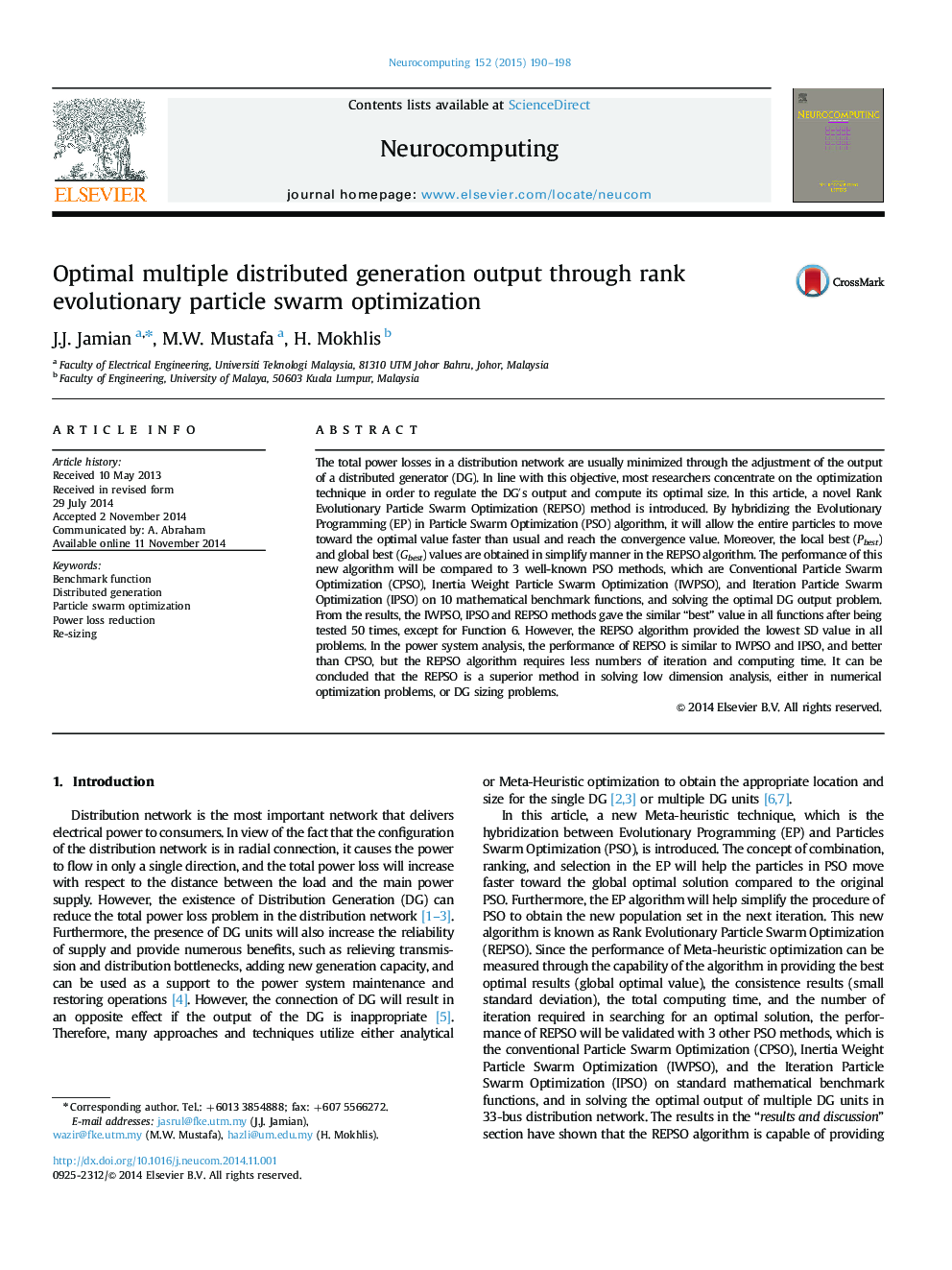| Article ID | Journal | Published Year | Pages | File Type |
|---|---|---|---|---|
| 406371 | Neurocomputing | 2015 | 9 Pages |
•REPSO can obtain the global optimal value in all test functions.•REPSO gives tremendous results in computing time and number of iteration (shortest).•REPSO is capable to give least standard deviation value in finding optimal DG output.•New hybridization method (EP and PSO) has improved the REPSO searching performance.
The total power losses in a distribution network are usually minimized through the adjustment of the output of a distributed generator (DG). In line with this objective, most researchers concentrate on the optimization technique in order to regulate the DG′s output and compute its optimal size. In this article, a novel Rank Evolutionary Particle Swarm Optimization (REPSO) method is introduced. By hybridizing the Evolutionary Programming (EP) in Particle Swarm Optimization (PSO) algorithm, it will allow the entire particles to move toward the optimal value faster than usual and reach the convergence value. Moreover, the local best (Pbest) and global best (Gbest) values are obtained in simplify manner in the REPSO algorithm. The performance of this new algorithm will be compared to 3 well-known PSO methods, which are Conventional Particle Swarm Optimization (CPSO), Inertia Weight Particle Swarm Optimization (IWPSO), and Iteration Particle Swarm Optimization (IPSO) on 10 mathematical benchmark functions, and solving the optimal DG output problem. From the results, the IWPSO, IPSO and REPSO methods gave the similar “best” value in all functions after being tested 50 times, except for Function 6. However, the REPSO algorithm provided the lowest SD value in all problems. In the power system analysis, the performance of REPSO is similar to IWPSO and IPSO, and better than CPSO, but the REPSO algorithm requires less numbers of iteration and computing time. It can be concluded that the REPSO is a superior method in solving low dimension analysis, either in numerical optimization problems, or DG sizing problems.
